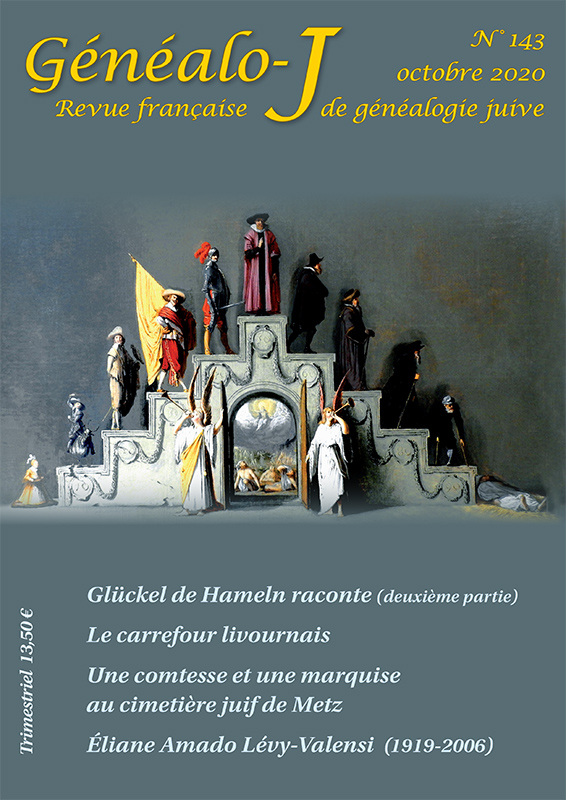
ABSTRACTS
Michel Gaspard
From Hamburg to Metz in the 17th century: Glückel Hameln’s Memoirs (Part II)
Glückel of Hameln was born in Hamburg in 1646. She married at the age of 14 and had fourteen children. After the death of her husband in 1689, she writes a chronicle of her life: the first literary work written in Yiddish, a unique testimony of Ashkenazi traders of that time.
The author, a direct descendant of Glückel, is preparing a documented translation of her Memoirs - little known in France. This second part focuses on the ancestor’s main activities: trading jewelry in Hamburg, Amsterdam and across Europe, arranging the marriages of her children and close relatives… The final section is about Glückel’s life in Metz after 1700. Her second husband went bankrupt, probably victim of a financial crisis in 1702. She spent the last days of her life at her daughter Esther’s home. Her unfinished seventh book stops five years before her death in 1724.
Alain Nedjar, Gilles Boulu, Liliane Nedjar, Raphael Attias
The Livorno crossroads: Genealogy of Jewish families around the Mediterranean Sea
Building on their book “Kettubot Registers of the Jewish Nation of Livorno (1626-1890), Genealogies and Family Itineraries” - recently published by the CGJ and awarded the prize for outstanding publication by the International Association of Jewish Genealogy, the authors now focus on the “Livorno’s crossroads” and provide key insights into genealogical research about the Diaspora around the Mediterranean sea and beyond.
Anne-Marie Fribourg
A countess and a marchioness in the Metz Jewish cemetery: about two unusual tombstones
The discovery of two graves bearing titles of nobility in the Jewish cemetery of Metz, led to a research into the identity of the individuals mentioned. We thus discover two sisters, Fanny and Amélie Muntzenberg, who lead us from the Congress of Vienna in 1815 to the Comédie Française.
Sandrine Szwarc
Éliane Amado Lévy-Valensi (1919-2006): genealogy and trajectory of an unknown philosopher
The philosopher and psychoanalyst Éliane Amado Lévy-Valensi (1919-2006) marked the history of ideas in France and Israel in the 20th century. Heir to the famous Allatini House of Salonika and descendant of the Algeria notable Levy-Valensi family, her ancestry sheds light on her life commitments. The wealth of her thought, illustrated in her multidisciplinary work that is currently being rediscovered, deserves admiration and recognition.